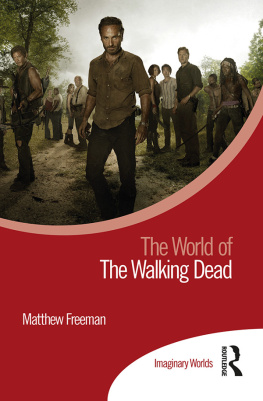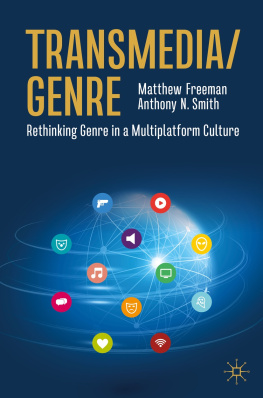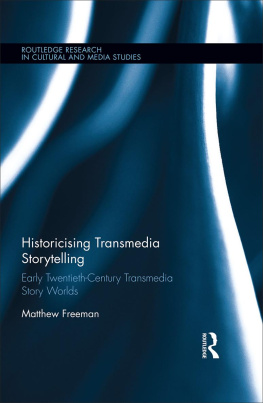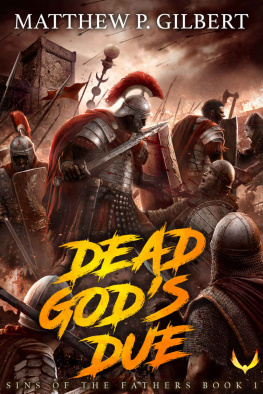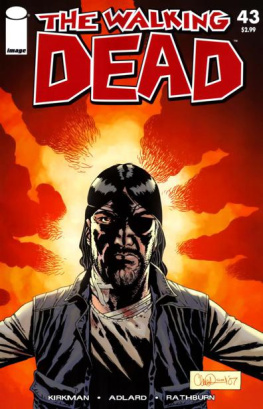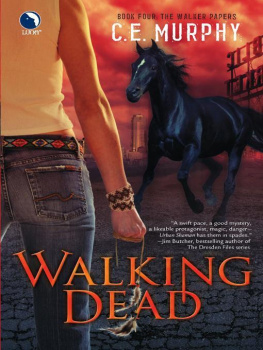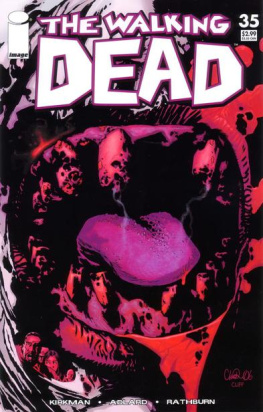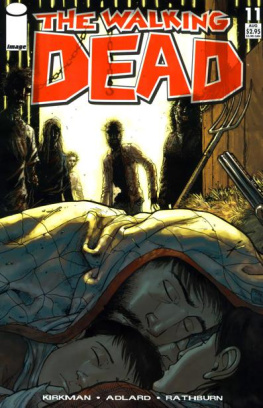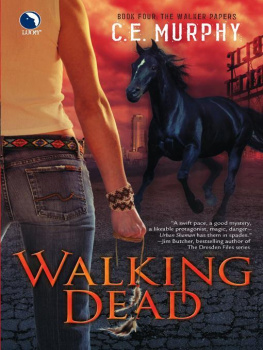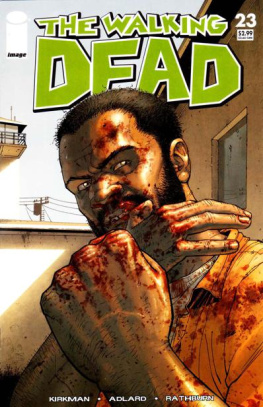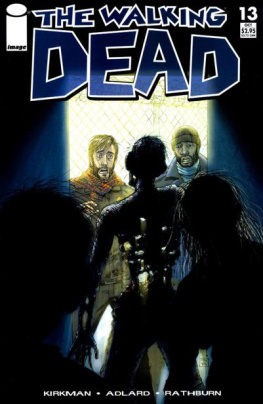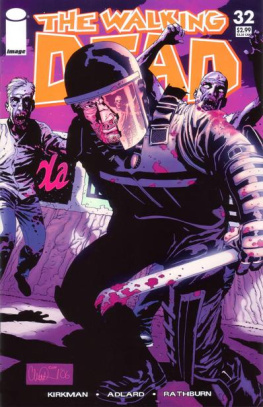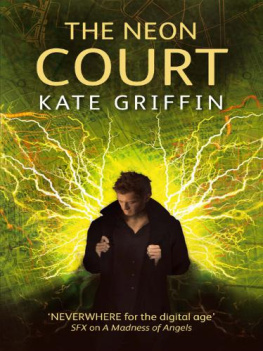The World of The Walking Dead
An accessible introduction to the world of The Walking Dead , this book looks across platforms and analytical frameworks to characterize the fictional world of The Walking Dead and how its audiences make use of it.
From comics and television to social media, apps, and mobile games, utilizing concepts derived from literary studies, media studies, history, anthropology, and religious studies, Matthew Freeman examines the functions and affordances of new digital platforms. In doing so, he establishes a new transdisciplinary framework for analyzing imaginary worlds across multiple media platforms, bolstering the critical arena of world-building studies by providing a greater array of vocabulary, concepts, and approaches.
The World of The Walking Dead is an engaging exploration of stories, their platforms, and their reception, ideal for students and scholars of world-building, film and TV studies, new media, and everything in-between.
Matthew Freeman is Reader in Multiplatform Media and Co-Director of The Centre for Media Research at Bath Spa University, UK. His research concentrates on cultures of media production across the borders of platforms, cultures, industries, and history, publishing extensively on the cultural histories and industrial workings of transmediality. He has also published on such topics as media branding, convergence cultures, and methodological approaches to media industry studies.
Imaginary Worlds
Each volume in the Imaginary Worlds book series addresses a specific imaginary world, examining it in the light of a variety of approaches, including transmedial studies, world design, narrative, genre, form, content, authorship and reception, and its context within the imaginary world tradition. Each volume covers a historically significant imaginary world (in all its manifestations), and collectively the books in this series will produce an intimate examination of the imaginary world tradition, through the concrete details of the famous and influential worlds that have set the course and changed the direction of subcreation as an activity.
he World of Mister Rogers Neighborhood
Mark J.P. Wolf
The World of The Walking Dead
Matthew Freeman
The World of DC Comics
Andrew J. Friedenthal
The World of The
Walking Dead
Matthew Freeman
First published 2019
by Routledge
52 Vanderbilt Avenue, New York, NY 10017
and by Routledge
2 Park Square, Milton Park, Abingdon, Oxon, OX14 4RN
Routledge is an imprint of the Taylor & Francis Group, an informa business
2019 Taylor & Francis
The right of Matthew Freeman to be identified as author of this work has been asserted by him in accordance with sections 77 and 78 of the Copyright, Designs and Patents Act 1988.
All rights reserved. No part of this book may be reprinted or reproduced or utilised in any form or by any electronic, mechanical, or other means, now known or hereafter invented, including photocopying and recording, or in any information storage or retrieval system, without permission in writing from the publishers.
Trademark notice : Product or corporate names may be trademarks or registered trademarks, and are used only for identification and explanation without intent to infringe.
Library of Congress Cataloging-in-Publication Data
A catalog record for this title has been requested
ISBN: 978-1-138-30337-9 (hbk)
ISBN: 978-0-203-73114-7 (ebk)
Typeset in Times New Roman
by Swales & Willis Ltd, Exeter, Devon, UK
For Georgia x
This book began as something of a summer project, but quickly became important in terms of reigniting my current thinking about imaginary worlds. Specifically, the writing of this book allowed me to rethink what an imaginary world really is, what its less tangible components consist of, how media work to articulate them, the role of audiences in reshaping these less tangible components, and most importantly why we all need storyworlds in our lives.
First, a big thanks to Mark J.P. Wolf for his generous support throughout the project. A few of the ideas in this book benefited from being published in other journals whose editors also deserve my thanks. An earlier iteration of was published as We dont get to stay the same way we started: The Walking Dead , Augmented Television, and Sociological Character-building in Frontiers of Narrative Studies 5:2 (2019). I therefore thank journal guest editors Jan-Nol Thon and Lukas Wilde for their thoughtful suggestions.
As ever, I would like to thank my amazing wife, Carley, for supporting me in my writing endeavors. And also thanks must go to my little girl, Georgia. I began researching this book just as Georgia was welcomed into the world; countless nights were spent with her fast asleep on my chest as I binged my way through The Walking Dead on Blu-Ray.
I know this sounds insane, but this is an insane world. Said declaration, championed by Rick Grimes (Andrew Lincoln) around the start of the sixth season of The Walking Dead , comes at a point in the apocalyptic zombie drama where the surviving characters are faced with a key dilemma: either stand together and attempt to rebuild some form of civilization, or give in to despair and let the plague of infected zombies feast on those who remain. On the surface, The Walking Dead is essentially a tale of world-building. Academic attempts to theorize the concept of building imaginary worlds have been rife in recent years (see, for example, Wolf, 2012, 2016, 2018; Saler, 2012; Anderson, 2015; Boni, 2017), but rarely has the concept of world-building been so intrinsically embedded into the narrative fabric of a fictional world as it is in The Walking Dead , a world whose story quite literally hinges on the rebuilding of its world from the ground up. The Walking Dead is the tale of a group of survivors who, following the aftermath of an unexplained zombie apocalypse, must work together not only to survive but to create a new world order with new social structures, new values, new modes of communication, and entirely new ways of living. Still, there is a case to be made that the world of The Walking Dead across all its media becomes a worse place as time goes on: as seasons on television increase and as issues of comic books mount up, the fictional world on display often becomes filled with less and less hope for the future. Even the main Walking Dead logo seen during the opening credits of the television series has been subtly decaying season by season to reflect the increasing decay of the imaginary world.
Not necessarily a story of world- building , then; The Walking Dead is just as much about the fragmentation of its fictional milieu. Characters roam between desolate locations in the hope of finding somewhere anywhere that might one day resemble the world they once knew. The Walking Dead is about searching the remains of an imaginary world, a world of empty spaces and violent creatures. And this theme of searching is important, since the way in which one goes about conceptualizing an imaginary world shapes the frameworks and perspectives through which it is made sense of. For instance, approaching The Walking Dead through the lens of world-creation might lead one to explore critical lenses drawn from the likes of literary studies or media studies. But it seems equally reasonable that understanding depictions of a fictional worlds fragmentation the downturn of its societal structures, the loss of its characters moral values, the absence of represented technologies, for example is something that approaches from philosophy, anthropology, and certainly history could help us with. Which brings me to this books first overarching objective. Imaginary worlds are perhaps the most innately interdisciplinary of media constructs, encompassing as they do dynamics of fictional cultures, peoples, histories, politics, places, spaces, and so on, and yet ironically few have attempted to analyze explicitly how different disciplinary approaches can yield greater understandings of imaginary world phenomena. This book aims to do precisely that, to make a deliberately transdisciplinary contribution to the study of world-building. It looks across different disciplinary perspectives, in turn expanding the critical toolkit via which imaginary worlds are analyzed by developing a new transdisciplinary framework.


